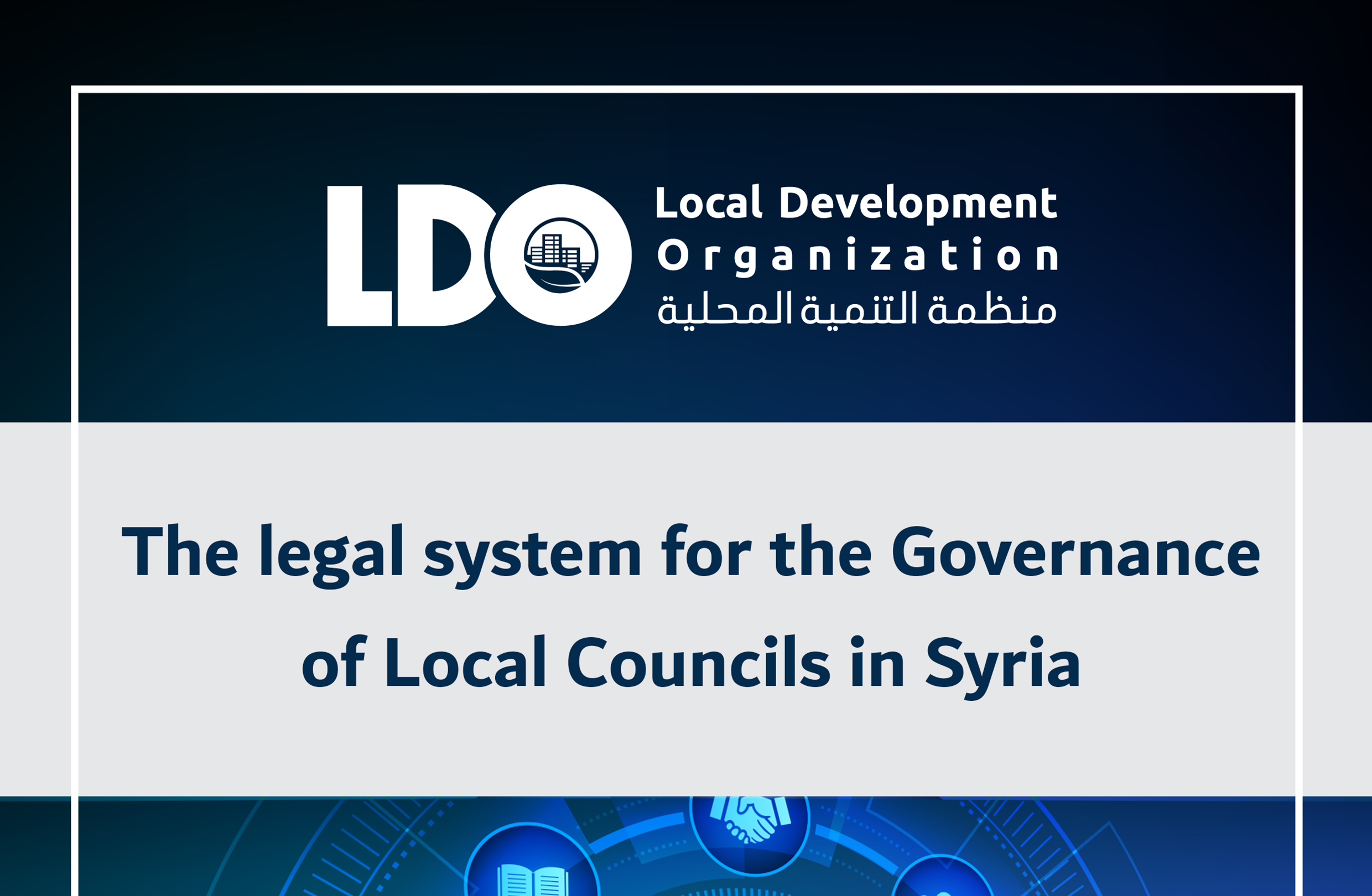Introduction
Non-compliance with laws and regulations or its absence, lack of participation and transparency, low efficiency and effectiveness, failure in responding to the different needs of citizens and other phenomena reflect the absence of good governance principles in local councils. This deprives citizens of their rights to participate in the affairs of their region and to access services. It also leads to the absence of distributive justice and the decline in human development indicators associated with poverty, illiteracy, health and environment degradation leading to a loss of confidence among the community parties.
All these factors were existing before the eruption of Syrian revolution in 2011. The management of the state facilities was conducted centrally, and even local councils were nominated by the only ruling party with little authority. These councils were subject to the law 15 issued in1971, which was loosely applied for decades. That is a result of the regime’s unwillingness to activate participation of the local people in managing their affairs and services. When the Syrian revolution began in the spring of 2011, the regime stopped basic services for all towns and cities. All workers in the service sector and local councils in these areas have been disabled within the framework of the application of the siege policy and preventing food and services in these areas to punish the population collectively. After mid-2011, the regime started to lose control so it issued reforming laws as it promised Syrian society to perform several years ago. Then, it issued the 107 decree which contained the Local Administration Act, and it referred to the principle of decentralization of the Syrian laws in it for the first time, but it was not put to implementation as the previous law.
A large number of people in each city or town in the liberated areas were affected by the disruption of services. So, some activists initiated the organizations of relief and service work in these areas and provided some basic services to those in need. However, the scale of needs quickly began to grow, to the point that individuals or small groups can no longer continue to provide services and assistance alone without cooperation and coordination with others. That’s when the idea of local councils started to emerge. These councils were managed by people and groups who were able to provide their services to those in need, most of the finance or in-kind support was provided by Syrian individuals inside or outside Syria until the need became great and campaign of fund-raising started outside Syria.
Local councils represent the main administrative nucleus in the liberated areas. Because of the need of effective and credible local councils, it was necessary to organize them to develop their performance and to empower local communities to be able to manage their affairs, strengthen a culture of community harmony and promote dialog among the components of these communities. This will lead to achieve development, provide the necessary services for citizens and achieve security and stability. In the past few years, unified regulations and rules for local administration have been adopted by the Ministry of Local Administration in the interim Syrian government, and these regulations are based on the laws and regulations already placed in Syria in order to maintain the unity of laws and regulations. Through this report, we will address the main governance aspects of local councils in opposition areas, and how it has developed mainly in some regions of Daraa, Rif Damascus and Aleppo because they represent distinct experiences as a result of the specific circumstances of each region; we will draw on previous studies and reports of central meetings with former workers in local councils.
To download the study, click here
